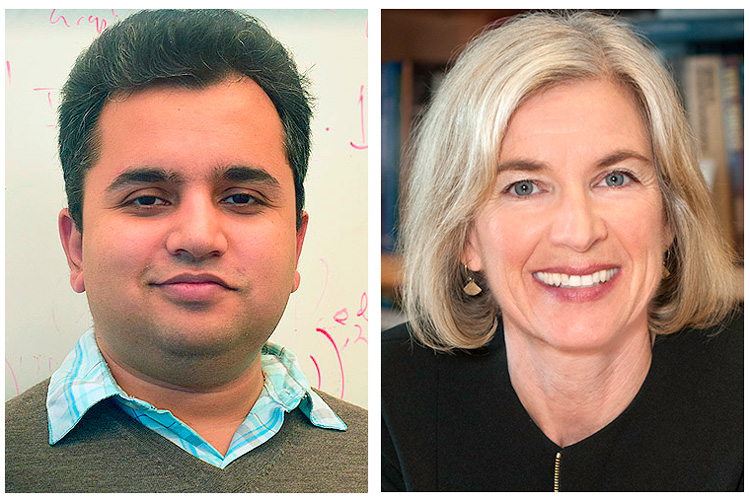National Academy of Sciences awards for Raghavendra, Doudna
Prasad Raghavendra and Jennifer Doudna received awards for their work in computer science and chemical sciences, respectively

January 17, 2018
Prasad Raghavendra, an associate professor of electrical engineering and computer science, and Jennifer Doudna, a professor of molecular and cell biology and of chemistry, were honored this week by the National Academy of Sciences for their innovative body of research.
Raghavendra shared the inaugural Michael and Sheila Held Prize with David Steurer, a professor of theoretical computer science at ETH Zurich, for “revolutionary contributions to the understanding of optimization and complexity in computer science, work that has relevance for solving the most difficult and intractable of computing problems.” The winners will share the $100,000 prize.
Doudna, a Howard Hughes Medical Institute investigator, received the 2018 NAS Award in Chemical Sciences for “pioneering discoveries on how RNA can fold to function in complex ways” and the invention, with Emmanuelle Charpentier, of the CRISPR-Cas9 gene-editing technology.
The winners will be honored in a ceremony on Sunday, April 29, during the National Academy of Sciences’ 155th annual meeting.
Raghavendra’s prize, awarded this year for the first time, was made possible through a bequest from the estate of Michael and Sheila Held. Doudna’s award, established in 1978 and currently supported by the Merck Company Foundation, is accompanied by a medal and a $15,000 prize.
Previous winners of the NAS Award in Chemical Sciences include Paul Alivisatos, a professor of chemistry and UC Berkeley’s executive vice chancellor and provost, chemistry professors emeritus Gabor Somorjai and Robert Bergman, and former chemistry professor Carolyn Bertozzi, who is now at Stanford University.
Another former UC Berkeley faculty member, James Allison, received the NAS’s 2018 Jessie Stevenson Kovalenko Medal “for important medical discoveries related to the body’s immune response to tumors.” He is now at the University of Texas MD Anderson Cancer Center. All are among 18 awards to 21 scientists announced this week.